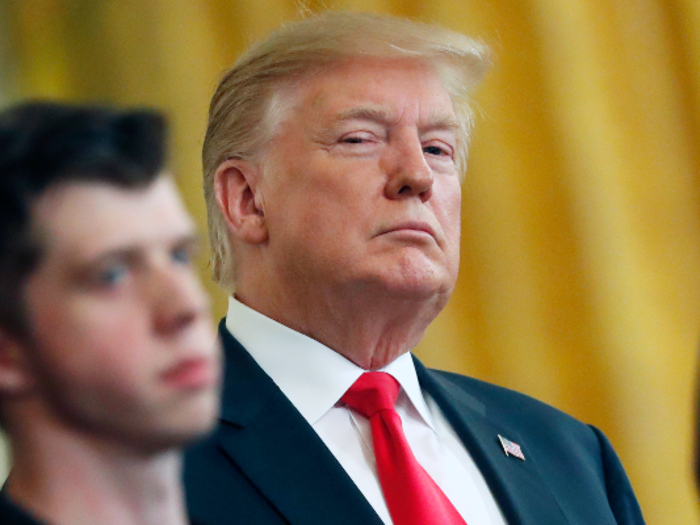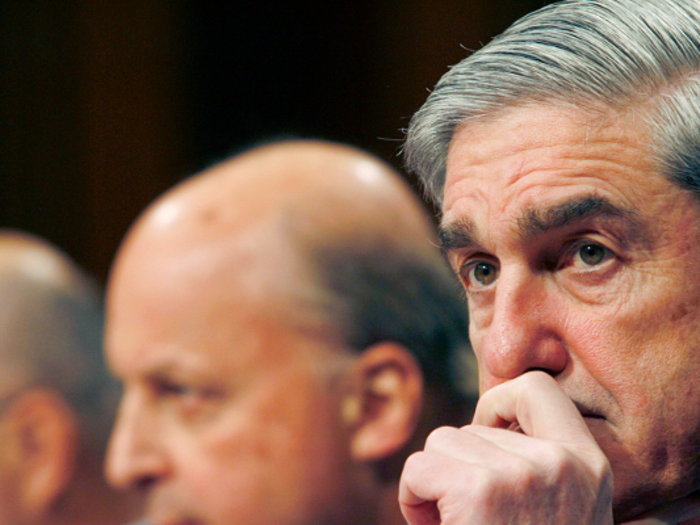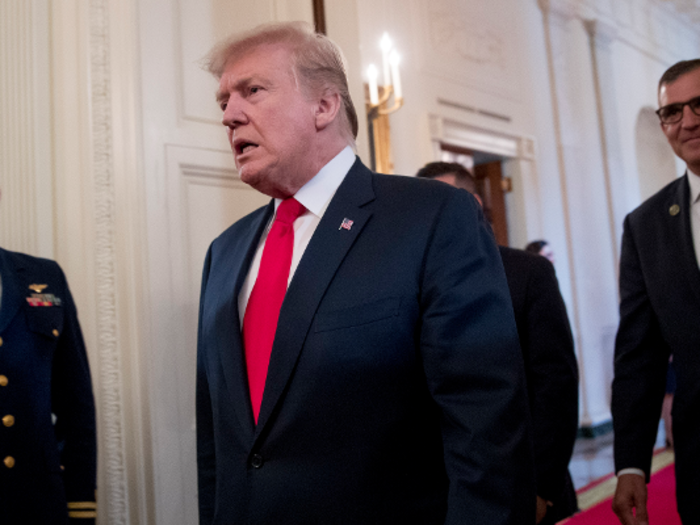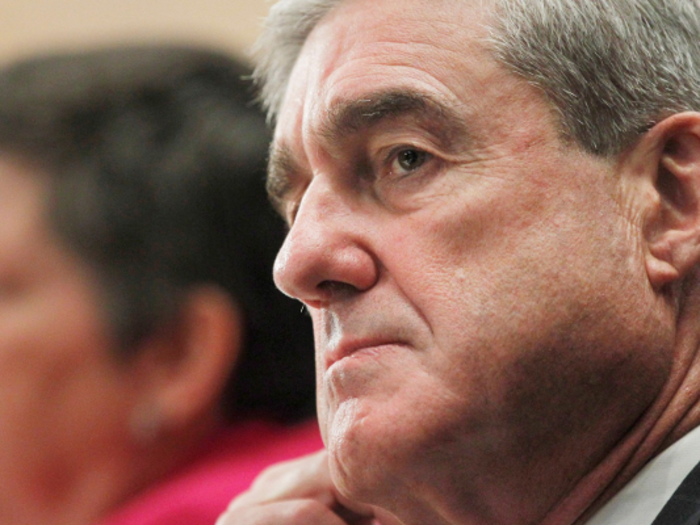- Home
- slideshows
- miscellaneous
- Mueller revealed why he didn't charge Trump with obstruction, and it directly contradicts what Barr told the public
Mueller revealed why he didn't charge Trump with obstruction, and it directly contradicts what Barr told the public
Barr said Mueller didn't make a decision on obstruction because of "'difficult issues' of law and fact" about whether Trump's actions were criminal.

Barr said Mueller laid out evidence "on both sides" of the obstruction issue.

What the Mueller report said: Prosecutors listed 11 events that could potentially amount to obstruction of justice, outlined below:
- "The Campaign's response to reports about Russian support for Trump."
- "Conduct involving FBI Director Comey and Michael Flynn."
- "The President's reaction to the continuing Russia investigation."
- "The President's termination of Comey."
- "The appointment of a Special Counsel and efforts to remove him."
- "Efforts to curtail the Special Counsel's investigation."
- "Efforts to prevent public disclosure of evidence."
- "Further efforts to have the Attorney General take control of the investigation."
- "Efforts to have McGahn deny that the President had ordered him to have the Special Counsel removed."
- "Conduct towards Flynn, Manafort, [REDACTED]."
- "Conduct involving Michael Cohen."
For each event, prosecutors painted a detailed picture of the president's repeated efforts to hamper the investigation through multiple avenues.
That included Trump's decision to fire Comey and the motives behind it; his attempts to engineer Mueller's ouster; his efforts to get investigators to publicly exonerate him; his attempts to conceal his financial interests in Russia while Congress was probing the issue; his anger toward Jeff Sessions for recusing himself; his attempts to shield associates like Flynn and Manafort from investigative scrutiny; and more.
According to US law, in order to establish an obstruction offense, the following criteria need to be met:
- An individual has corrupt intent.
- They engaged in obstructive conduct.
- That conduct was connected to a "pending or contemplated proceeding."
In several instances, prosecutors outlined conduct that appears to meet those criteria, most notably involving Trump's conversations with the former White House counsel Don McGahn and his attempts to get McGahn to remove Mueller as special counsel.
But prosecutors provided little, if any, mitigating information pointing to Trump's innocence.
In fact, they emphasized, "If we had confidence after a thorough investigation of the facts that the President clearly did not commit obstruction of justice, we would so state. Based on the facts and the applicable legal standards, however, we are unable to reach that judgment."
Barr said the OLC's 1973 decision did not impact Mueller's choice not to conclude whether Trump obstructed justice.

What the Mueller report said: When laying out why they chose not to make a conclusion on obstruction, the first thing prosecutors mentioned was the OLC decision.
The OLC found that "the indictment or criminal prosecution of a sitting President would impermissibly undermine the capacity of the executive branch to perform its constitutionally assigned functions," the report said.
"Given the role of the Special Counsel as an attorney in the Department of Justice and the framework of the Special Counsel regulations ... this Office accepted OLC's legal conclusion for the purpose of exercising prosecutorial jurisdiction," prosecutors concluded.
Barr said Mueller's report states that "while this report does not conclude that the President committed a crime, it also does not exonerate him."

On this claim, which Barr quoted directly from the report, the attorney general is correct.
But prosecutors went further than stating they did not exonerate Trump.
Specifically, they laid out a roadmap of evidence that could bolster ongoing or future investigations into Trump's conduct while in office.
In the obstruction case, prosecutors wrote, "We recognize that a federal criminal accusation against a sitting president would place burdens on the president's capacity to govern and potentially preempt constitutional processes for addressing presidential conduct."
Several Democratic lawmakers said that assertion was a reference to congressional oversight of the executive branch.
A footnote following the statement in the Mueller report appears to confirm as much, saying the "constitutional processes" refer to "the relationship between impeachment and the criminal prosecution of a sitting president."
Crucially, Mueller's team also disagreed with Barr's contention that a president cannot obstruct justice. And contrary to what Barr believes, Mueller's team said a person can be guilty of obstruction even if no underlying crime — like conspiracy — exists.
Here's why Mueller didn't charge Trump with obstruction, according to his report.

Mueller's report lays out three main reasons why prosecutors didn't indict Trump or suggest he should be charged:
- They adhered to the OLC's 1973 decision that a sitting president cannot be indicted.
- They believed that if their report suggested Trump could face federal charges without actually bringing them, it would not be fair because there would be no trial, and he wouldn't have an opportunity to clear himself.
- Mueller did not consider filing a sealed indictment against Trump out of fear that it would be leaked and significantly impede his ability to govern.
Notably, however, prosecutors pointed out that while the OLC's guidance says a sitting president cannot be indicted, it "recognizes that a criminal investigation during the President's term is permissible."
"The OLC opinion also recognizes that a President does not have immunity after he leaves office," they continued. "Given those considerations, the facts known to us, and the strong public interest in safeguarding the integrity of the criminal justice system, we conducted a thorough factual investigation in order to preserve the evidence when memories were fresh and documentary materials were available."
That wording leaves open the possibility that Trump could be charged with obstruction of justice once he leaves office.
Popular Right Now
Popular Keywords
Advertisement